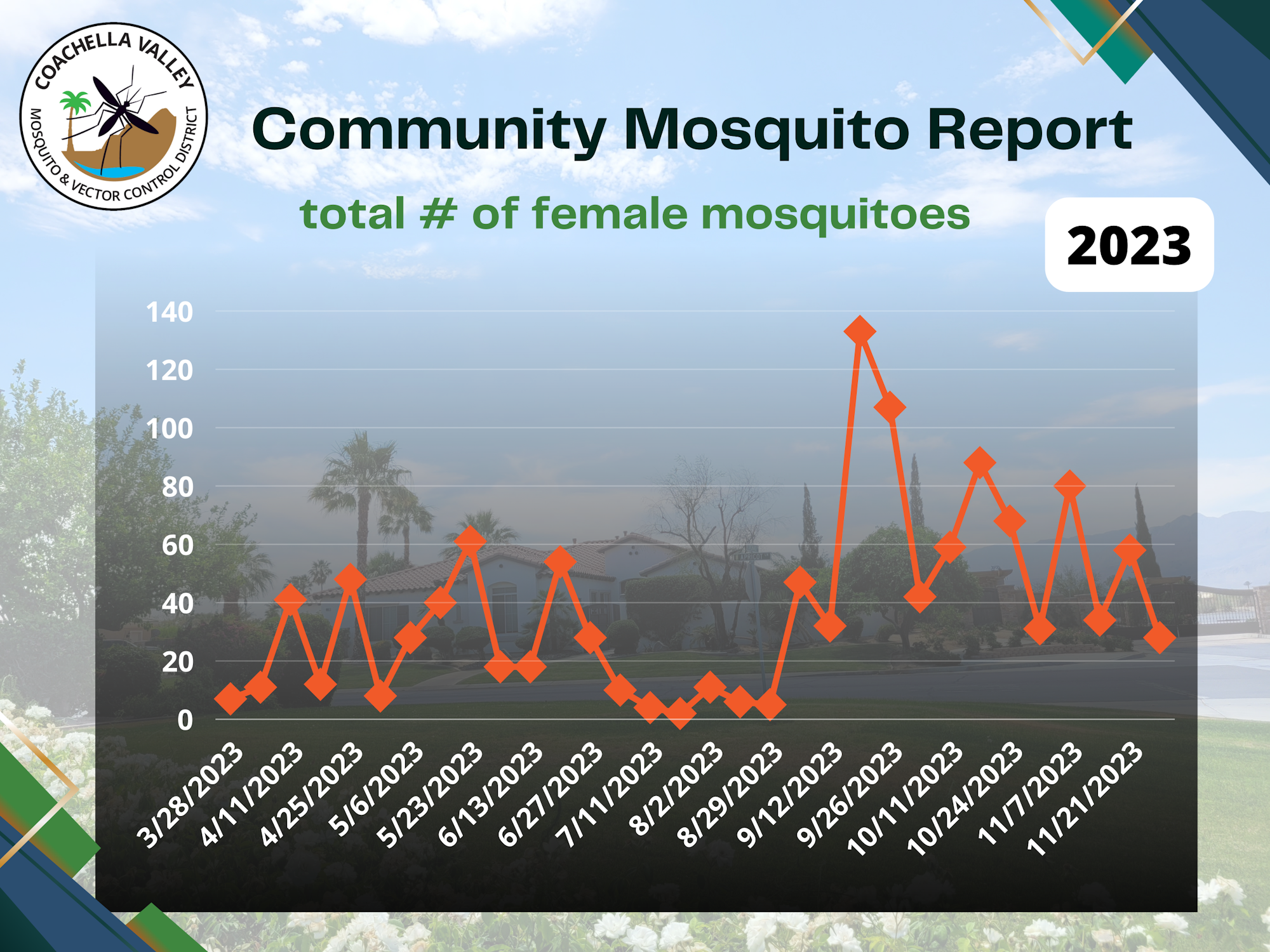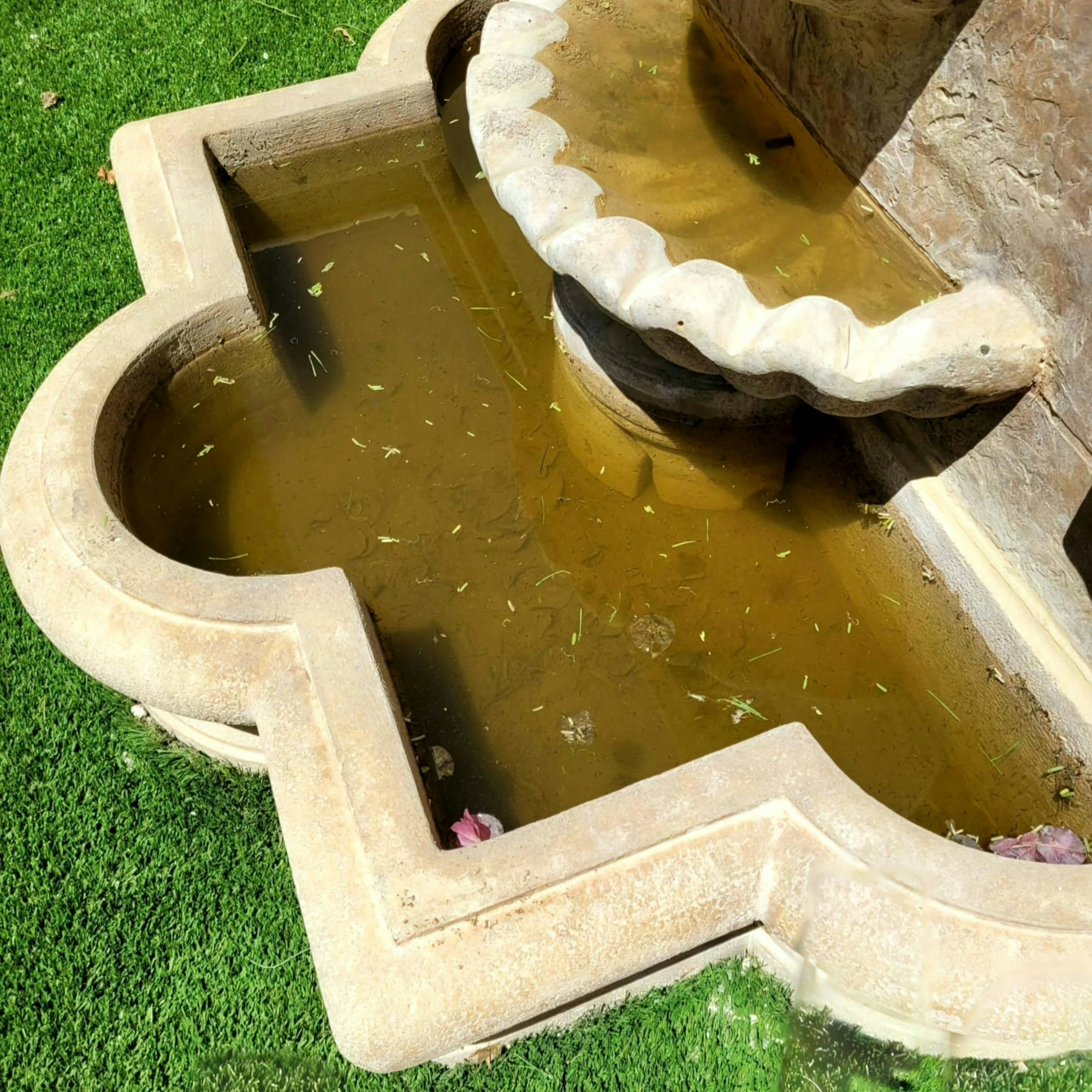The Orchard:
The Orchard Homeowners Association is a lovely neighborhood with friendly residents and beautiful greenery. Community members work together to reduce the health risks mosquitoes and other vectors pose.
Community members can use the page provided to help monitor mosquito numbers and report breeding sources.

.jpg?ixlib=rb-1.1.0&w=2000&h=2000&fit=max&or=0&s=bdf397957803f1868a79311572df4089)
Community Update:
- Let's work together to prevent pesky insects from bothering our community. Mosquitoes are still present in the Orchard community and their population is expected to increase, as shown in the graphic. With the improving weather, it's important to wear insect repellent during outdoor activities and to check for stagnant water sources around your property. Remember, eliminating standing water is the key to getting rid of mosquitoes. Let's all do our part to keep our community mosquito-free.
- It's important to note that the number of mosquitoes in your community can be affected by temperature, wind, and weather conditions. Mosquitoes are cold-blooded creatures and thrive in temperatures around 80°F. However, they become sluggish and unable to operate below 50°F.
General information
.png?ixlib=rb-1.1.0&w=2000&h=2000&fit=max&or=0&s=7901f87ed4b3119fa483fa9e06e892d6)
- Mosquito abundance increases by two significant factors: temperature and the presence of water.
- As the temperature rises during the summer, mosquito activity will also increase until the peak of the hot season if they can find a place to lay their eggs. For example:
- Over-watering grass so excess water flows into the street. Make sure you're sprinklers are not causing urban drool!
- Saucers under outdoor plants. Mosquitoes can breed in a tablespoon of water. Plant saucers are the leading breeding cause for invasive mosquito Aedes aegypti.
Mosquito control requires everyone's participation. CV Mosquito advises all residents to frequently check their properties for stagnant water sources and immediately eliminate them to prevent mosquito breeding.
.jpg?ixlib=rb-1.1.0&w=2000&h=2000&fit=max&or=0&s=78ad991db304a152facb69d15ccd803f)

.png?ixlib=rb-1.1.0&w=2000&h=2000&fit=max&or=0&s=12b9a441d35fb0e8ef709eb5e19a967c)
- Life Cycle – about a week. The life cycle of a mosquito from egg to adult can be completed in less than a week, depending on water temperature and the mosquito species. Eggs deposited on water surfaces usually hatch within a day or so, while those deposited in soil can hatch months or even years later, depending on water availability. On average, the female usually deposits from 100 to 150 eggs at a time. Over the life course, the female mosquito may deposit three to four batches of eggs.


.png?ixlib=rb-1.1.0&or=0&w=720&h=411&fit=fill&fill=blur&auto=format%2Ccompress&s=a5caeb52ac97d2294a062131c24968f4)
.jpg?ixlib=rb-1.1.0&or=0&w=720&h=411&fit=fill&fill=blur&auto=format%2Ccompress&s=226f42bd7c9eee985061fecdc23e0f68)